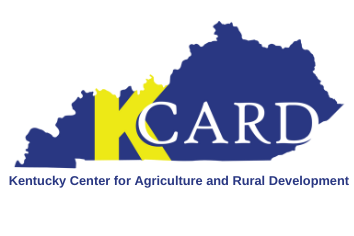In our blog post a few weeks ago, we took a look at how you develop initial revenue assumptions for a new business. In this post, let’s talk about an existing business and how we help that business develop financial projections. Why bother with developing projections? You know they are going to be wrong, right? Sure. Projections will almost certainly not be exactly correct because so many factors go into what will happen to reach a sales number or expense number.
Direct to Consumer Beef Webinar Series Takeaways
In mid-July we hosted the “Direct-to-Consumer Beef Webinar Series” with several partners including the University of Kentucky Department of Animal and Sciences, Kentucky Beef Council, and several others. We offered this series to respond to the conversation and education around proper production, processing, business development, marketing, and sales for finished beef. We’ve pulled together a few of the noteworthy takeaways from the webinar series.
Labor-to-Sales Ratio: What is it? And why should I care about it?
Have you wondered if your business has too many or too few employees working? You might want to consider calculating your labor-to-sales ratio. This number is a commonly used performance measure by businesses to track their labor costs and its impact on operations. The labor-to-sales ratio shows the total labor costs for each $1 in sales.
National Farmers Market Week
This week is National Farmers Market Week, giving us an opportunity to celebrate Kentucky’s farmers markets for boosting the local economy by supporting local producers, providing jobs, improving local nutrition, and much more. So how should you celebrate National Farmers Market Week? Simply visit your local farmers market! There are over 160 farmers markets in the state of Kentucky and over 2,700 farmers market vendors to buy from.
How Much Am I Going to Make? Developing Revenue Assumptions
To prepare financial projections for a new business, you have to be able to come up with a way to calculate expected revenue. I have had conversations with people who insist that there is no way to come up with such a number and really struggle with this. How do you calculate your expected revenue for the next year to three years?
Co-op 101: Who Manages a Co-op?
The day-to-day business operations of a cooperative are for the most part no different than any other business, but one of the key differences is that people who patronize the business play an active role in its governance. Cooperatives are democracies, and they are dependent upon the active participation of its members.
Balance Sheets
To continue our financial series this week, we’re discussing balance sheets. Your balance sheet shows what you own (assets) and what you owe (liabilities) on a specific date. This important financial statement says a lot about your business…
Hashtags 101
Have you heard of a hashtag? A hashtag is an online tagging device used on certain social media platforms. Using hashtags helps others easily find content centered on a certain theme or subject. A hashtag starts with the number (#) symbol followed by a series of words. Placing the hashtag symbol before the words will automatically turn the phrase into a searchable link.
Cash Flow and Income Statement: How Are They Different and How Do They Work for You?
When working with clients, KCARD often starts by looking at a current income statement (also called a Profit/Loss statement) that is in operation and helps develop a projected income statement for a new or expanded operation. This helps to show if the business is profitable now or will be profitable in the future. However, the cash flow statement is critical to understanding whether the business will be able to survive the initial startup stage or any downturns. This statement shows inflows and outflows of cash to or from the business. So what’s the difference between the two and how they are used?
Top 5 Tips for Direct Marketing Meat
Direct marketing is a wonderful way to promote your farm and fulfill a need for consumers. Our guest blogger, Dr. Gregg Rentfrow, has been with the University of Kentucky Cooperative Extension program since 2006 as the Meat Specialist. Dr. Rentfrow works closely with meat and livestock producers, and the 4-H and FFA programs in the state to provide training and education about meat production. Dr. Rentfrow is a trusted and valued resource for KCARD wit his extensive knowledge of the meat and livestock industries and has participated in several KCARD Marketing Locally Grown Meat workshops in the past.











